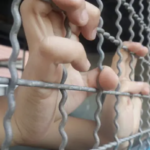Arrest Rights for Children

Just like adults, children have a number of rights when they are arrested or questioned by police. Children are more vulnerable than adults in these situations, so if the police have arrested your child or a child you know, it’s important that the young person understands their rights.
Can a child be arrested for questioning?
Just like with adults, police are not entitled to arrest a child or young person for the purposes of questioning them. For a child or anyone else to be arrested without a warrant, there needs to be a reasonable suspicion that they have committed a crime or are about to commit a crime. This suspicion needs to have a factual basis rather than just being arbitrary on the part of the arresting officer.
Police can ask a young person to accompany them to the police station for questioning, but the person doesn’t have to give their consent. If a child or young person you know has been asked for questioning, it is generally best they refuse until they have spoken with a lawyer. Anything they say could later be used as the basis for an arrest and a criminal charge.
Even if a young person is arrested they are not required to answer police questions. It’s a good idea to remain silent until they have spoken with a lawyer in case they say anything that is misleading or inaccurate when they are under pressure. Any person under the age of 18 is entitled to have a support person with them while they undergo questioning, whether they have been arrested or not. If they are under the age of 14, the support person should be a parent or guardian or someone else who has been given permission by their parent or guardian. Aged 14-17, the support person can be a friend, family member, lawyer or youth worker who is over the age of 18.
If there is a warrant out for a child’s arrest, police can arrest them at any time and take them to a police station. A judge or magistrate issues an arrest warrant if a person is charged with an offence, or if they have failed to pay a fine or turn up on a nominated court date.
Can children be searched?
If police want to search a child for prohibited drugs, weapons or any other illicit items they must have reasonable suspicion to do so. They need to inform the person being searched of the reason for wanting to search them, and provide their own details on request.
There are a number of rules surrounding police searches and how they are carried out, especially strip searches. A young person is entitled to have someone else present during searches and this is a good idea. Police are not allowed to use excessive force when performing searches and having a witness can help in the future if the person searched wishes to make a complaint.
Can children be fingerprinted?
Children under the age of 14 can’t be photographed or fingerprinted without a court order. For children between the ages of 14 and 17, police can take a photograph or their fingerprints but only to verify their identity. This can only be done if the child is in police custody. For children of any age police need to apply for a court order if they want to fingerprint them or take photographs when they are not in custody. DNA samples can’t be taken without a specific court order giving police permission to do so.
Police are allowed to keep suspects in custody for up to four hours without charging them, or 12 hours with permission from a court. If they try to keep a person for longer without either formally charging them or releasing them, this is a contravention of their rights.
If you suspect that police have contravened your child’s arrest rights in relation to an alleged criminal offence, it is a good idea to speak to a lawyer as soon as possible. Depending on the circumstances, you may be able to make a formal complaint against the officers involved and have any charges against your child withdrawn as a result.






